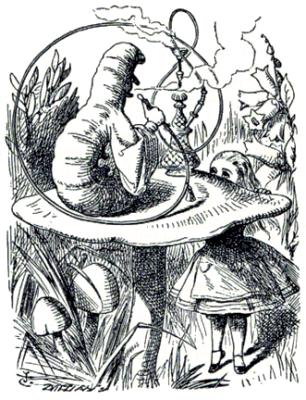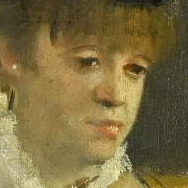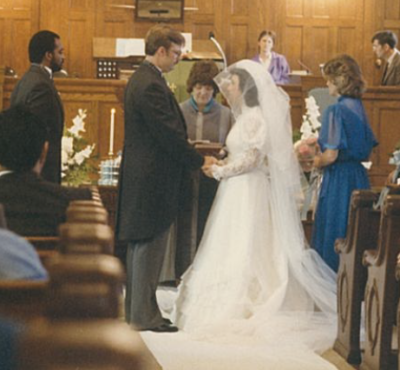This post describes, in part, the effects of a degenerative neurological condition called Huntington’s Disease. Any negative behavior on the part of my wife should be attributed to that condition. Any negative behavior on the part of myself should be attributed to my need for God’s ongoing grace.
If you would like to read our story from the beginning, you can start here: How We Got Here…
This Monday we weighed Janet and she was down to 91 lbs. This week Frannie saw Janet as she was getting a bath and it scared her – again. Frannie and I take walks every evening and lately the topic of conversation is always the same: What are we going to do after Mom dies?
I guess it’s pretty normal to look at a coming change and wonder what it’s going to mean. Of course, most talk of that sort is really just speculation because, in truth, we have no idea what the impact is going to be.
My company has me working at home, at least until sometime in September. So for a change this week, instead of working in my office, I’ve been working downstairs sitting with Janet. On the one hand, having me in the same room seems to be calming. But on the other hand it means that I can watch her and she feels a bit resistant to the oversight.
Thursday, I was working and she asked me to go upstairs to work. When I asked her why, she said: “The clicking of the mouse is too loud.”
“The clicking of the mouse is too loud…” I said slowly. I was skeptical, but figured why not? So I gathered my things and went up to my office on the 2nd floor.
However, no sooner had I sat down at my desk than the alarm that we have on her chair to let us know when she is trying to get up went off. Running to the living room, I saw her quickly sitting back down.
“I was trying to reach the TV remote,” she explained.
“Janet, the remote is right next to you on your tray.”
“Oh?” she said, feigning surprise.
“Yeah. You know what it looks like to me?” I asked. “It looks to me like you wanted me upstairs so you could stand up and take a stroll without me scolding you. That’s about right, isn’t it?”
Realizing that she was busted, she nodded. “Yep…”
We talked about it a bit more, and then I moved my work back to the living room. I guess the mouse is much quieter now.
Then Friday, we had a visitor. Ray, the pastor of the church that Frannie and I have been attending during this shutdown, came by for conversation and prayer. The visit was also an opportunity for Ray to meet Janet and get to know her a bit. In addition, he brought communion – which is something that Janet has sorely missed. For Janet, communion is about remembering, but it is also a way of welcoming and receiving Jesus, again and again.
❦ ❦ ❦ ❦ ❦ ❦
It occurred to me this week that there are basically two kinds of people in the world: Those for whom reality is an interruption keeping them from the more important things in life, and those for whom the interruptions are life.
As a caregiver, I fall often into living out the first option, when I know that the second one is actually true. The problem is that there is a curious idea abroad in the world today that encourages us to establish goals for ourselves and then judge the quality of our life based on our perceived progress towards meeting those goals.
Unfortunately, this approach to life has some problems. For example, I (like many people) began choosing my future at an insanely young age when someone first asked me what I wanted to be when I “grew up.” Now, 66 years into the process of growing up, if I were to measure my life against those pre-pubescent goals, I would feel frustrated – I am clearly not an astronaut. But even if I shifted my focus to include more adult goals, the frustration would remain.
For instance, my intention was to have a home in one place and not move my family as much as my folks, brother and I moved while I was growing up. But those intentions were frustrated to the point that our kids don’t really feel like they have a “hometown.”
My goal professionally was to have a career with a good company and retire after many years of faithful service with the proverbial gold watch. That goal was frustrated by companies that labored under the burden of poor management – and my pathological inability to keep my mouth shut when I see something wrong. (I know, you would never have guessed that about me, right?)
And in terms of relationships, I had hopes for a long and happy marriage to Janet, and dreams of us spending our “golden years” traveling around the country in a motorhome visiting grand-kids – but these are the biggest frustrations of all.
If I were to focus solely on those frustrations I would, like the small-time boxer Terry Malloy from the play (and movie) On The Waterfront, cry out:
Viewed from that perspective, all I have to show for 66 years on this earth are regrets.
Of course, there are those who adhere to the cultural myth about the “self-made” man or woman who, through strength and perseverance, overcome all obstacles. But as attractive as it might seem to say with the Victorian poet William Ernest Henley:
I am the captain of my soul.
… the truth is that soul captains rarely meet happy ends. For example, Henley himself died in pain from tuberculosis at the age of 54 after an amputation caused by the disease, and in the end his over-the-top poem Invictus (for which he is famous) didn’t change his life in the slightest. I wonder if, in the end, the poem’s hubris provided him with any real comfort?
But there is still the other option – that these “interruptions” and “side-tracks” are themselves life – maybe not one we chose, but one that was needful. From that perspective I can see beyond the roadblocks to recognize that while some of the big things didn’t work out as I hoped, many others that I didn’t see coming were better than I ever imagined.
For example, dreams of having children together are wonderful – even better is the opportunity to actually help bring them into the world, as I did when I cut the umbilical cord for my son Michael. Or to share the joy of watching our daughter Frannie grow and exceed the expectations of the “professionals” who forecast for her a bleak future.
“Ah. But,” you might ask, “surely you don’t mean to suggest that there is anything positive in Janet’s current condition are you?”
Actually there is. Janet has been a teacher her whole life. This illness will have been her biggest lesson to the world: How to face a future that in the short-term is clouded and uncertain, and how to do so with grace, dignity and strength. She is a demonstration of faith in the face of absolute certainty of “failure.” She will die, but it will be a death that is her entry into a new life filled with joy and health. Over the years she has many times expressed that hope, and that faith.
And for me? Well, many people go through life wondering about and obsessing over whether they have ever “made a difference” in the world. When someday on my deathbed, I consider my life while the light fades, I will be looking not at a seamless darkness born of frustrations and failures, but rather a starry night shining brightly with a myriad of points of love and grace. Not exactly what I had planned, but truly it is all good.
In Christ, Amen ☩
❦ ❦ ❦ ❦ ❦ ❦
A prayer for when you are facing the end…
“Blessed are You, Lord God, King of the Universe. It is right that I should at all times and in all circumstances bless You for Your eternal presence. But today I want to bless you especially for offering us an invitation to enter into your joy. Thank you for redeeming not just my future, but my past as well. Amen”




